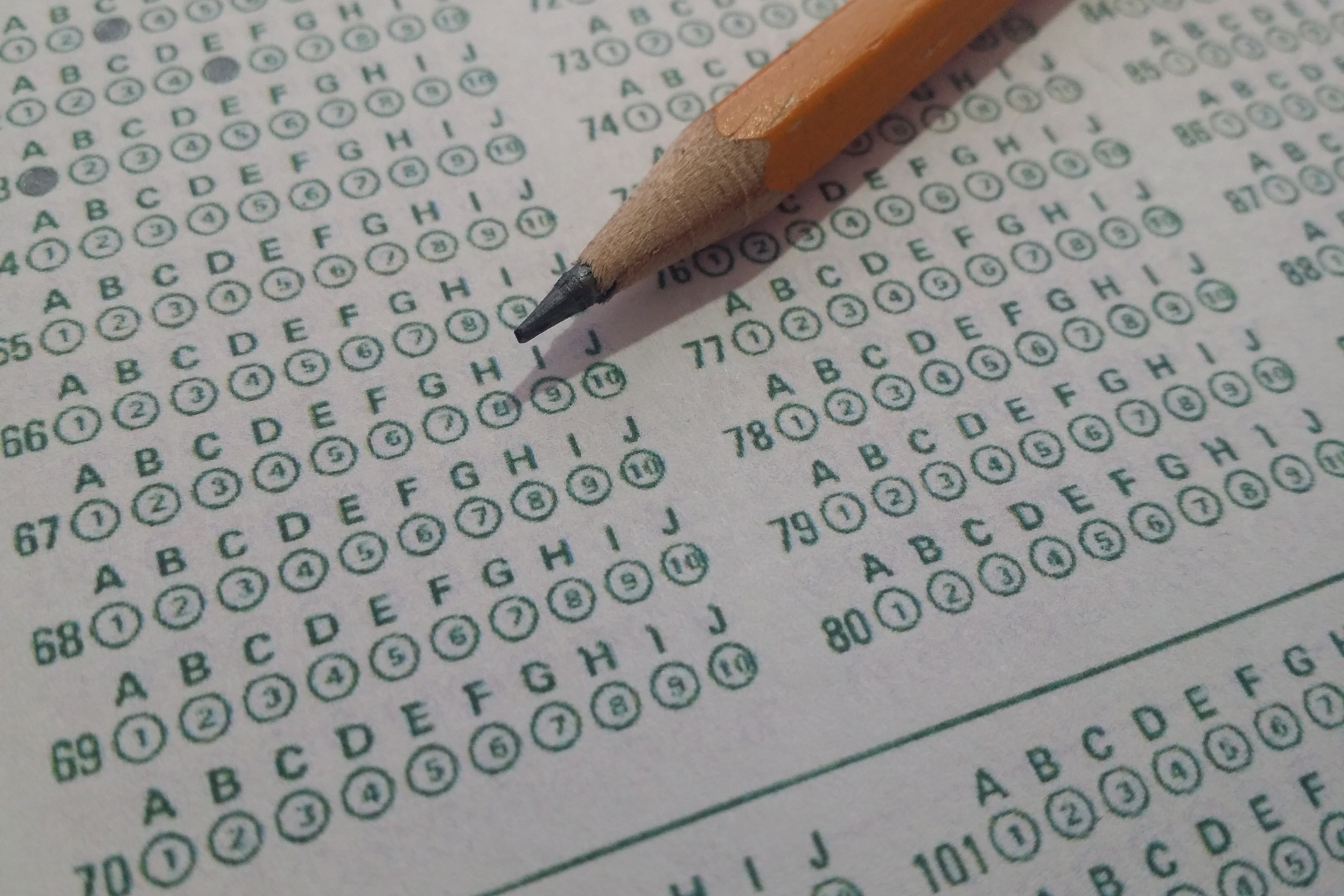MCAT Scores 2025: Percentiles, Averages, and What’s Considered Good
Discover the MCAT scores for 2025, including percentiles, averages, and what’s considered a competitive score. Get the insights you need to ace your exam!
Posted November 3, 2025

Join a free event
Learn from top coaches and industry experts in live, interactive sessions you can join for free.
Table of Contents
The MCAT exam is one of the most important exams for students aspiring to enter medical school. Whether you’re taking it for the first time or retaking it to improve your score, understanding how MCAT scores are calculated and what counts as a good score can help you set realistic goals. In this guide, we’ll go over everything you need to know about MCAT scores, including percentiles, averages, and what’s considered a good score for 2025.
Understanding the MCAT Scoring System in 2025
The MCAT exam (Medical College Admission Test) is not just about getting questions answered correctly. Because it’s scaled and equated, even small differences in section scores can influence how admissions officers interpret your application. The MCAT isn’t curved against other test takers, but it is scaled to ensure consistency across different exam dates.
Understanding how MCAT scoring works helps you set a realistic target score that actually aligns with your goals, not just what you’ve seen on Reddit. It keeps you from over-focusing on raw numbers and instead helps you see the bigger picture: how schools evaluate your score in context, how section imbalances may be viewed, and whether a retake is worth it. Most importantly, it gives you clarity on how your MCAT fits into the broader holistic review process alongside your GPA, experiences, and story.
Read: MCAT Score Range & Average of the T50 Medical Schools
MCAT Score Breakdown
What is the MCAT Score Range?
Total MCAT Score Range: 472–528
Section Score Range: 118–132
Each MCAT test includes four sections:
- Chemical and Physical Foundations of Biological Systems
- Critical Analysis and Reasoning Skills
- Biological and Biochemical Foundations of Living Systems
- Psychological, Social, and Biological Foundations of Behavior
These scores are designed to help medical schools evaluate your readiness for medical education. A score of 528 is the highest possible, and a score of 472 is the lowest.
Read: Average MCAT Scores of the Top 50 Medical Schools
How MCAT Scores Are Calculated
The MCAT is scored in two steps: raw score to scaled score, and then the final total score.
Raw Score: This is the number of questions you answer correctly in each section.
Scaled Score: Your raw score is then converted to a scaled score using a statistical process called equating. This process adjusts for differences in difficulty across different test dates.
Total Score: The total score is the sum of your four scaled section scores.
Example: A score of 514 might come from section scores of 127 (Chem/Phys), 128 (CARS), 130 (Bio/Biochem), and 129 (Psych/Soc).
MCAT Sections Overview
Let’s break down the sections, which assess a mix of scientific knowledge, reasoning, and critical thinking skills:
| Section | What It Tests | Subjects Covered | Key Competencies Assessed |
|---|---|---|---|
| Chemical and Physical Foundations of Biological Systems (Chem/Phys) | Your ability to apply core chemistry and physics concepts to human biology and medicine | General chemistry, organic chemistry, introductory physics, biochemistry, basic biology | Understanding of chemical and physical foundations, systems-based applications, and data interpretation |
| Critical Analysis and Reasoning Skills (CARS) | Analytical reading, argument evaluation, and critical thinking skills, based on passages from the humanities and social sciences | Philosophy, ethics, literature, political science, cultural studies (no outside knowledge required) | Comprehension, reasoning skills, logical inference, author’s intent, tone analysis |
| Biological and Biochemical Foundations of Living Systems (Bio/Biochem) | Mastery of core concepts in biology and biochemistry within a living systems context | Cell biology, molecular biology, genetics, biochemical foundations, physiology | Understanding of biological systems, living systems, and how they function at the molecular and organism levels |
| Psychological, Social, and Biological Foundations of Behavior (Psych/Soc) | How psychological and sociological factors affect health, behavior, and patient outcomes | Psychology, sociology, biology, research methods, and cultural competency | Empathy, research literacy, health disparities, behavioral sciences |
What is a Good MCAT Score?
A "good" MCAT score can vary depending on your goals and the medical schools you are targeting. Medical schools have different score expectations based on their competitiveness, mission, and overall applicant pool. But here are general benchmarks for total MCAT scores:
- 500 = National average MCAT score
- 510–514 = Strong for mid-tier MD schools
- 515+ = Competitive for top MCAT programs
Average scores:
- All test takers: ~501.3
- MD applicants: ~506.5
- MD matriculants: ~511.9
Even a low MCAT score in one section can raise questions. We’ll cover how to handle that below.
Expert Tip: Use AAMC’s MSAR tool to check school-specific score ranges before you apply.
Understanding MCAT Percentiles: How Your Score Compares to Other Test Takers
What is a Percentile Rank?
Percentile ranks show how your score compares to all other MCAT test takers. For example, a score of 515 places you in the 91st percentile, meaning you scored better than 91% of test takers. Percentiles are updated annually by the Association of American Medical Colleges (AAMC).
Here is a breakdown of how different MCAT scores rank by percentile:
| MCAT Score | Percentile Rank (2025) |
|---|---|
| 501 | 56th percentile |
| 508 | 76th percentile |
| 515 | 91st percentile |
| 520 | 98th percentile |
| 522 | 99th percentile |
| 528 | ~100th percentile (highest MCAT Score) |
This ranking system helps medical schools interpret how well you performed relative to other test takers.
Raw Score vs. Scaled Score
The MCAT is scored in two steps: raw → scaled → total.
Raw Score - The number of questions you answered correctly in each section. There’s no penalty for wrong answers, so always guess if you're unsure.
Scaled Score - Your raw score is converted to a scaled MCAT score (ranging from 118 to 132 per section) using a statistical process called equating. This ensures fairness across different versions of the test, so scores mean the same thing regardless of when you test.
Total Score - Your total MCAT score is the sum of your four scaled section scores, ranging from 472 to 528.
| Concept | Definition |
|---|---|
| Raw Score | Number of questions answered correctly in a section |
| Scaled Score | Final section score (118–132) after adjusting for test form difficulty |
| Total Score | Sum of all four scaled test scores; total MCAT score range = 472–528 |
This process avoids rewarding luck or penalizing test takers who receive slightly harder questions. It also prevents score inflation, keeping the test fair across thousands of test forms and exam dates.
What If You Score Low in One Section?
A lopsided score, like 130 / 130 / 124 / 131, can raise questions during the review process, especially if the low section is CARS (critical thinking) or Psych/Soc (behavioral science), which some schools weigh more heavily.
But it’s not an automatic rejection. Here’s how to think about it and what to do next:
How to Mitigate a Low Section Score
- Offset it with academic or experiential strength. A strong undergraduate GPA, upward academic trend, or research background in that content area (e.g., psychology for a low Psych/Soc) can signal readiness despite the dip.
- Use your personal statement (or secondaries) to provide context. If there were testing accommodations, illness, or major life events during prep, and the low section isn't consistent with your academic history, you can briefly explain this without making excuses.
- Tailor your school list. Some medical schools publish minimum section score cutoffs, often 124–125 per section. Prioritize schools that view the MCAT holistically and don’t have rigid section thresholds.
- Consider how the section aligns with your intended specialty. For example, a low Bio/Biochem score may matter more for research-heavy MD/PhD programs than for clinically-focused DO schools.
When to Retake the MCAT
A retake is worth considering if:
- Your total MCAT score is below 505 for MD (or below 500 for DO). You’re consistently scoring 4+ points higher on full-length practice tests
- Your low section score drops you below school cutoffs, or the confidence band overlap obscures your true potential
- You didn’t take full-length timed exams before test day, or had major prep gaps
When to Skip a Retake
A retake may not be necessary if:
- You’re applying to DO programs, post-baccs, or linkage programs with lower average MCAT requirements
- Your score is within your target schools’ 10th–90th percentile range
- You have a strong GPA, compelling personal story, and competitive extracurriculars or clinical exposure
- You’re unlikely to gain ≥ 3–4 points with additional prep (MCAT score increases after a retake are often modest)
Expert Tip: Many admissions officers care more about your overall readiness and academic consistency than one imperfect section. If the rest of your application is strong and you’re applying strategically, a single low section isn’t a dealbreaker.
Tips for MCAT Prep
Here’s how top scorers and the students who gain the most ground approach their prep strategically.
Start with Full-Length Practice Tests
If you’re not regularly taking full-length, timed exams under realistic conditions, you’re not preparing for the real MCAT. Period. Full-length practice tests (especially AAMC exams) simulate the mental fatigue, pacing, and passage complexity of test day better than any other tool. Aim for at least five, ideally spaced out across your final 6–8 weeks of prep. Use each one to fine-tune timing, identify consistent weak spots, and get comfortable sitting for a 7.5-hour exam.
Identify and Triage Your Weak Sections
Not all MCAT sections demand the same approach. Struggling with biological foundations might mean you need more active recall and pathway mapping. Falling behind in CARS or reasoning skills likely means you need to read differently, not just more. The key is to isolate section-specific weaknesses, not just overall content gaps. Diagnose what’s really holding you back: timing, comprehension, stamina, or conceptual understanding, and build your study plan around those needs, not generic advice.
Time Your Test Strategically
Your exam date should match your readiness, not just your application timeline. That usually means giving yourself 3–4 focused months of prep (longer if you’re balancing school or work), and choosing a date that ensures your score release falls before primary application deadlines. A rushed test date can sabotage months of prep. Be honest about your progress, especially if you’re plateauing below your target range.
Don’t Go It Alone, Work With an Expert
There’s a reason why many top scorers work with coaches. An experienced MCAT tutor doesn’t just explain content; they help you think like the test. They’ll analyze your raw scores, identify your blind spots, and build a study structure that’s realistic for your life. They’ll also hold you accountable on the days when motivation dips (and it will). If you’re aiming for a competitive jump, say from 501 to 510+, this kind of guidance can be the difference between a good plan and actual score movement.
Leland has dozens of coaches who’ve scored in the 98th–100th percentile and helped hundreds of students break through plateaus. Whether you’re just starting or deciding if you’re ready for test day, browse top MCAT coaches and find one who fits your goals, background, and schedule.
[top MCAT coaches]
Making Sense of Your MCAT Score
Your MCAT score range spans from 472 to 528, with section scores between 118 and 132. They’re scaled using a process called equating, which ensures fairness across test dates and forms. That means your score reflects more than just how many questions you got right; it shows how you performed in context.
Percentile rank, not just the number, shapes how medical schools interpret your performance. And while one low section might raise questions, it doesn’t automatically disqualify you. What matters is how the rest of your application supports your readiness and how well you’ve matched your score to your school list.
Above all, remember this: a strong MCAT score is achievable—even if you're starting from behind. With the right timeline, strategy, and support, we've seen students jump 10+ points and land at top programs. You don’t have to do this alone.
Work With an MCAT Tutor Today
If you’re feeling stuck, second-guessing your prep strategy, or just trying to figure out how to hit your goal score, you’re not alone. The MCAT is tough, but with the right coach, it becomes strategic, focused, and actually doable.
Leland’s MCAT tutors include 520+ scorers, former admissions readers, and med students who’ve helped hundreds of students boost their scores, some by 10+ points. Whether you're aiming for a retake, targeting a 515+, or just starting to study, we’ll help you build the plan and momentum to get there.
- Browse top-rated MCAT tutors
- Book a free call with an advisor to get matched
- Read real student reviews
- Join a free MCAT strategy event
The sooner you get started, the more strategic your prep becomes and the faster your score starts to move.
Read these next:
- The Best 50+ Free Resources for the MCAT Exam
- MCAT Study Schedules: Comparing 1, 3, and 6-Month Plans
- MCAT High Yield Topics: Everything You Need to Know
- How Many Times You Can Take the MCAT – (& When to Take It)
- The Best MCAT Prep Course for Your Success
FAQs
What is a good score on the MCAT?
- A score of 511 or higher is considered good. This places you around the 82nd percentile, meaning you performed better than 82% of test-takers. Aim for no section score below 127 to be competitive for most medical schools.
Is a 520 MCAT score good?
- Yes, a 520 is excellent. It places you in the 97th percentile, indicating top-tier performance. This score is highly competitive for top medical schools.
What score is 70% correct on the MCAT?
- Scoring approximately 70% correct on the MCAT typically translates to a total score between 500 and 505, placing you around the 50th to 60th percentile. However, this can vary depending on the specific exam version and section difficulty.
How is the MCAT scored?
- The MCAT is scored using a scaled system. Each of the four sections is scored between 118 and 132, and the total score ranges from 472 to 528. Your raw score (number of correct answers) is converted to a scaled score to account for variations in test difficulty.
Is 470 a good MCAT score?
- No, a score of 470 is below average and places you around the 2nd percentile. Most medical schools have higher average accepted scores, typically in the 500s. A score of 470 would likely need to be improved to enhance your chances of acceptance.


















